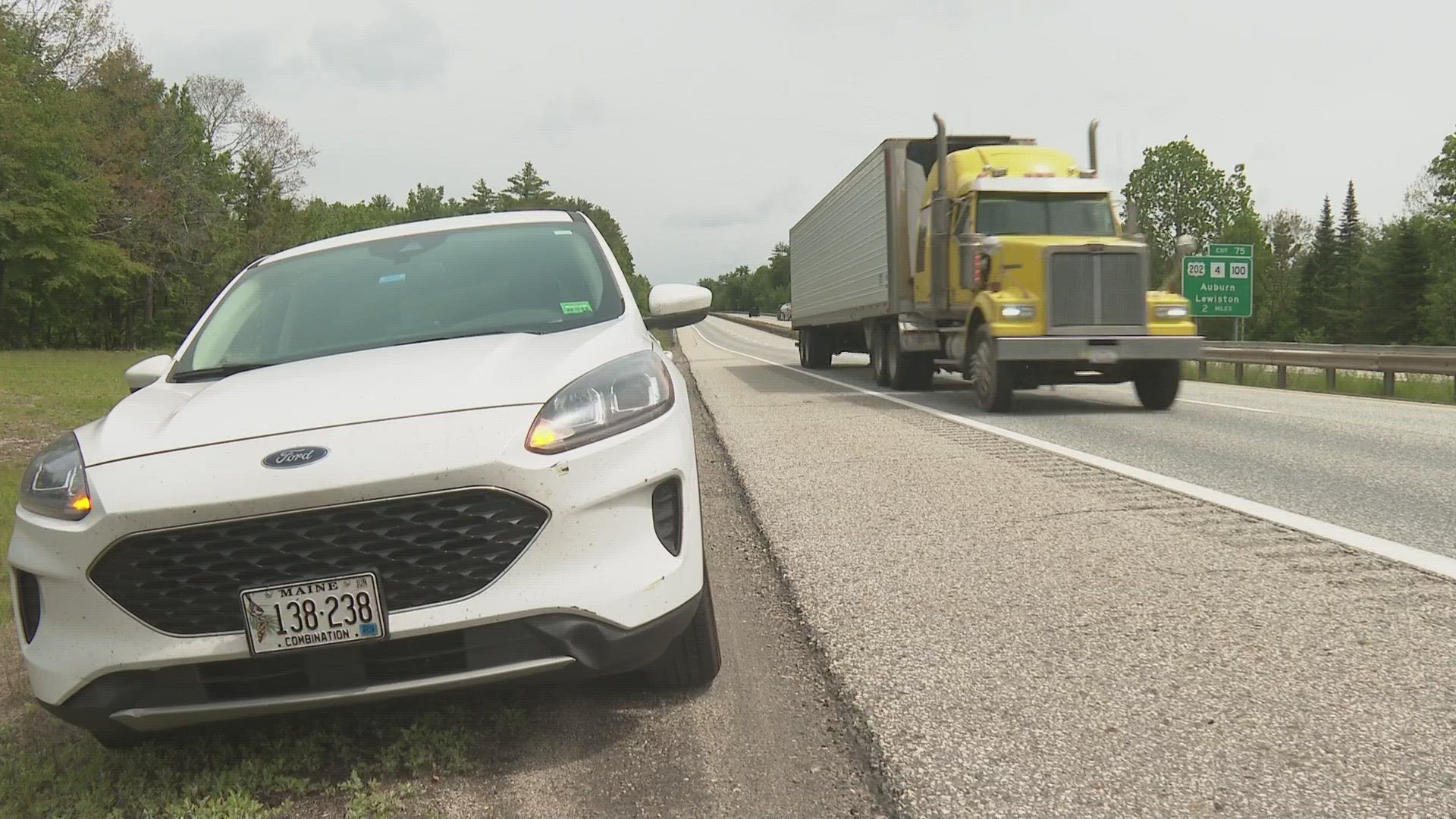LEWISTON, Maine — Maine's law requiring drivers to slow down or move over for emergency or transportation crews now includes any disabled vehicle after the Legislature passed the law in late May.
The expansion to the law requires a driver of a vehicle that is disabled on a public way to turn on the hazard lights, and, "if available, place one or more external warning devices, including a warning triangle or flare, in position to alert an approaching motor vehicle."
For other drivers on the road passing by, the law requires them to "pass a disabled motor vehicle in a lane not adjacent to the disabled motor vehicle or, if not possible or safe to pass in that nonadjacent lane, to pass the disabled motor vehicle safely at a careful and prudent speed."
The penalty for not abiding by the law is a minimum fine of $275. The law goes into effect later this fall, 90 days after the Legislature adjourns.
Establishing the law is one part of the equation: getting drivers to follow it is an entirely different challenge.
AAA tow truck operator Tom Jacobsen was nearly killed in March while helping a driver on the side of the Maine Turnpike in Auburn, when a pickup truck drove up the bed of the tow truck, going airborne, and skidding down the highway.
Maine's slow down, move-over law already includes tow truck operators. The driver of that truck broke that law.
"I could have been killed," Jacobsen said. "I've had a lot of close calls, but when you go through something like this — it's been since March 1, and it still hits home."
Jacobsen was not injured, and neither was his passenger, the driver of the disabled car, whom Jacobsen had put in the cab of his truck. The airborne pickup missed both of them by inches.
"Lights don't protect you. Vests don't protect you. Four-way flashers don't protect you. They're all the way to try to get a recognition and awareness for the situation and get those motorists to slow down," said Pat Moody of AAA Northern New England. "So, it really comes back to the motorists on the roads."
"I don't know what was going through his mind or what he was doing," Jacobsen said. "People that do slow down and move over, you want to stop them and shake their hand and say, 'Thanks very much,' because it's very gratifying, and you feel respected. Everybody's a human being, and we need to care a little more."

